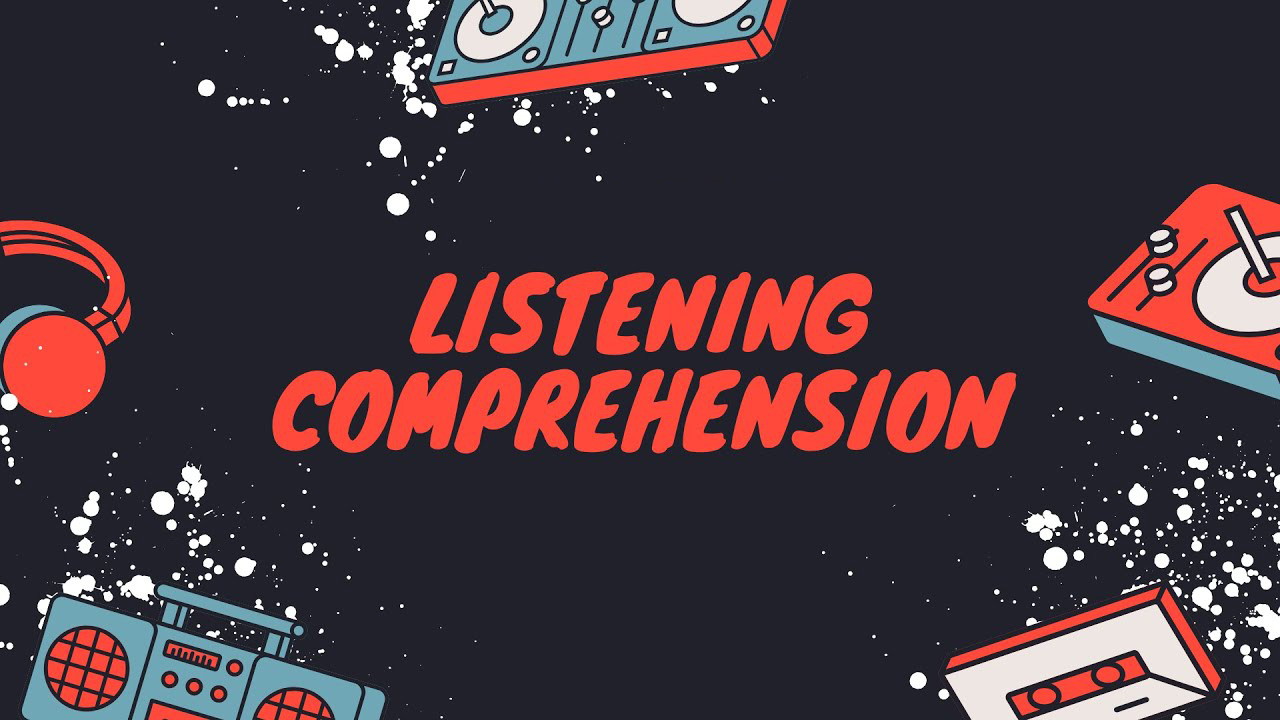I will elaborate upon the importance of listening skills, as well as how to improve them, in order to effectively learn a new language. As you may already know, my belief is that listening and reading are the keystones to understanding any language. You must internalize the language by immersing yourself in it.

How to improve your listening comprehension by weighing up the balance of repetition and novelty
The outside world is where you can apply what you have learned and get your brain accustomed to a new language. This is most effectively accomplished through listening and reading. Reading aids in the acquisition of new vocabulary, whereas listening acclimates your brain to the language itself. Developing listening comprehension abilities is incredibly crucial, as being comfortable in conversation is a vital aspect of language learning. If you are unable to comprehend the words being spoken, speaking in the language becomes uncomfortable and impractical.
Engaging in a thought-provoking discussion.
So, how can one use listening to improve their language skills? What are some tips to improve listening? First and foremost, it varies from person to person. Personally, I find it difficult to sit still and only listen. Attempting to listen to a podcast or any other audio lesson for half an hour in a comfortable chair never seems to work for me, as my mind frequently wanders and I cannot remain focused.
If I scheduled study time, it is usually dedicated to reading or working on my iPad watching movies and TV-shows. This begs the question, where does listening fit into the equation? Listening possesses a significant advantage in that it can be done anytime, anywhere. Although I may not always have my ipad on hand, I recently purchased a pair of new air pods that sit outside of my ears and work exceedingly well. Yesterday, I went jogging while wearing them and was still able to hear everything without them being plugged directly in my ear. My preferred time to listen is usually first thing the morning.
In the morning, I have a brief seven-minute exercise routine, during which I listen to something. While making breakfast, I continue to listen. If I exercise sometime during the day, I listen. And of course, if I’m in the car, I listen. With all this time to listen, the question then arises: do you always maintain complete focus while listening? It is impossible to remain 100% focused while listening; accepting imperfection is a vital aspect of language learning. Just as everyone makes mistakes while speaking, you will come across challenging areas while listening.
It’s important to acknowledge that there will also be when you lose focus and your mind wanders off elsewhere while listening. However, it is acceptable as long as you return to what you were originally listening to. For example, during a time I washing my landuary while listening to something, maybe I’m only fully concentrated on the content for half the time. I don’t worry about the exact percentage because I know it’s not possible to remain fully focused percentage of the time. But, regardless of the actual percentage of focus, the critical part is that I am exposing myself to the language and actively listening.
The proportion of time I spend actively listening serves to expose my brain to the language, allowing me to become accustomed to it. However, it’s crucial to note that it’s inefficient if you listen to something in your target language and don’t understand a significant portion, such as only 5%. Personally, I find it beneficial to listen to content even if I don’t comprehend it entirely, but then I make an effort to read it, look up unfamiliar words, and review the linguistic material.
After reading the material and looking up unfamiliar words, I’ll listen again. Sometimes, I still don’t understand the content, which is frustrating to some extent because I had grasped some of its concepts while reading. Nonetheless I realize from personal experience that with continuous effort, I will slowly comprehend the content. Initially, it may seem like noise, but through consistent reading, looking up, and listening, more of the content will become comprehensible over time. Therefore, I don’t recommend listening to the same lesson repetitively in one sitting.
As I have reiterated multiple times, the brain requires both repetition and novelty. Therefore, I suggest listening to an item a few times before moving on to the next one, even if you don’t completely understand the first. For instance, you can start with lesson one, listen to it, read it, and listen again until you understand about 60 to 70 percent of it, then move on to the next one. Don’t make the mistake of trying to master one specific lesson or content item, as it is all about exposure and assisting the brain in getting used to the language. Remember, repetition and novelty are essential. Over time, if you keep listening and practicing, you will notice that your comprehension will improve considerably.
If you keep doing the same over and over, the brain tends to pick up less and less information. Therefore, it is crucial to move on to the next lesson and keep pushing yourself forward while maintaining a balance between repetition and novelty. Numerous studies examine how the brain learns and argue that block learning (reading or listening to something for the third,, or fifth time), results in less and less learning. So, it is essential to keep moving forward. Don’t worry about losing focus or not understanding everything. Just keep listening, practicing, and exposing yourself to new material.
It is important to keep challenging and rewarding your brain with new materials while allowing for enough repetition to start noticing specific aspects that you may have missed the first time around For example, you can listen to a specific scenario that you have listened to 3 or 5 times before, and you may suddenly notice a verb pattern or structure that you hadn’t noticed before. Even though you might know the rule vaguely, on the 6th time, you might notice it in a different way. Therefore, when go back to the same material, you can allow yourself to notice certain things while maintaining repetition and novelty. You don’t have to notice everything, and you may lose some focus, but certain things will help you in your gradual acquisition of the language. Remember that the goal of listening comprehension is not for perfection but gradual improvement. The better your listening comprehension, the better your to have conversations. It is also important to give yourself a variety of repetitious and challenging materials and to combine reading with listening. Focus on certain aspects of pronunciation that you may have missed before, and be aware that you may notice things you haven’t before, even after several times of listening.




